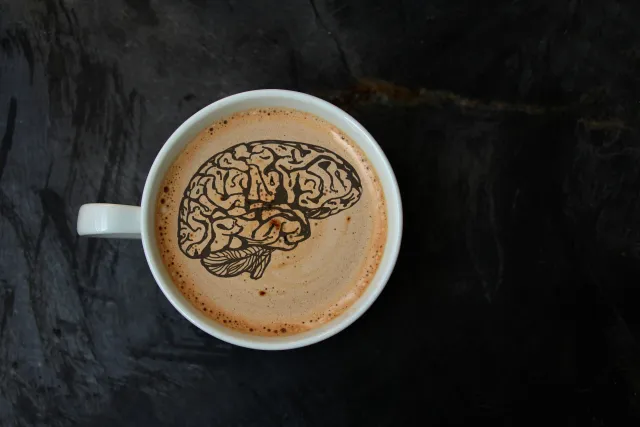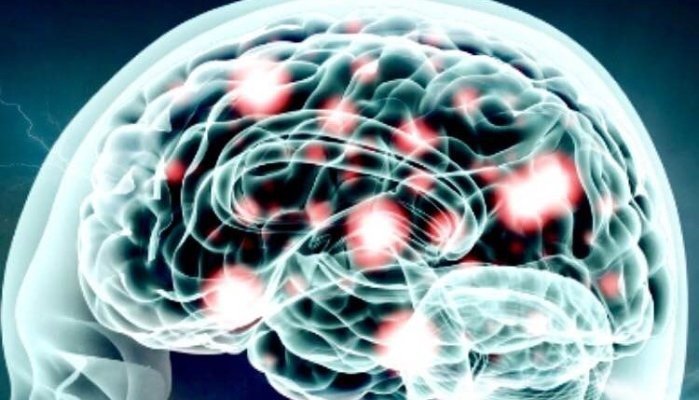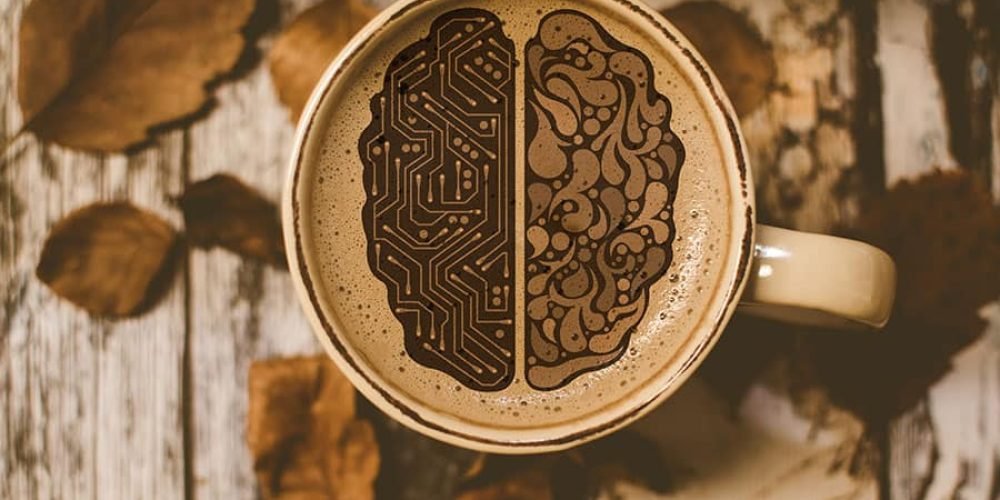Does Caffeine Help ADHD Symptoms ? – Caffeine is one of the most commonly consumed stimulants worldwide, known for its ability to enhance focus and energy. This raises an important question: does caffeine help ADHD? For individuals managing Attention Deficit Hyperactivity Disorder (ADHD), understanding the potential role of caffeine as a natural stimulant is crucial. In this article, we’ll delve into whether caffeine can truly aid in managing ADHD symptoms, its benefits, and any potential drawbacks backed by research and expert opinions.
Does Caffeine Help ADHD Symptoms or Make Them Worse?
Caffeine, as one of the world’s most popular stimulants, has often been considered a potential aid for improving focus and alertness. But does caffeine help ADHD symptoms, or can it exacerbate them? To answer this question, it’s essential to understand how caffeine affects the ADHD brain, its potential benefits, and the risks involved.
For individuals with ADHD, stimulant medications like methylphenidate or amphetamines are commonly prescribed because they increase dopamine levels in the brain, improving focus and attention. Caffeine, though much milder, works in a somewhat similar way—it blocks adenosine receptors, which not only helps to keep you awake but also indirectly increases dopamine activity. This has led some to wonder whether caffeine could mimic the effects of ADHD medications, albeit on a smaller scale.

Does Caffeine Help ADHD Symptoms ?
Potential Benefits of Caffeine for ADHD Symptoms
Some research and anecdotal evidence suggest that caffeine may help reduce common ADHD symptoms such as inattention, impulsivity, and difficulty concentrating. The stimulant properties of caffeine can improve alertness and may even help with tasks requiring sustained focus. For adults with ADHD, consuming moderate amounts of caffeine through coffee or tea might provide a noticeable, short-term boost in productivity and mental clarity.
Additionally, caffeine’s accessibility and affordability make it an attractive option for those seeking alternatives to prescription medications or for supplementing their current treatment plan.
The Risks: When Caffeine May Make ADHD Symptoms Worse
While caffeine and adhd may seem promising, it doesn’t work the same way for everyone. For some individuals with ADHD, caffeine can lead to overstimulation, increasing symptoms like restlessness, jitteriness, and even anxiety. These side effects can counteract the potential benefits, making it harder to focus and manage daily tasks.
How Caffeine Works in the Brain? : A Closer Look
Caffeine is a popular stimulant consumed worldwide, but how does caffeine help ADHD, and why is it often discussed as a potential aid for managing symptoms? To answer this, we need to dive into how caffeine interacts with the brain and its effects on focus and attention, especially for individuals with ADHD.
Blocking Adenosine Receptors
One of the main ways caffeine works in the brain is by blocking adenosine receptors. Adenosine is a neurotransmitter responsible for signaling tiredness and promoting relaxation. By blocking these receptors, caffeine prevents the brain from feeling drowsy, leading to increased alertness. This mechanism raises the question: does caffeine help ADHD by boosting attention and energy levels, or is its effect too mild to make a difference?
Enhancing Dopamine Activity
Caffeine indirectly boosts dopamine, a neurotransmitter that plays a crucial role in focus, motivation, and reward. ADHD is often associated with lower dopamine levels, which is why stimulant medications that increase dopamine are commonly prescribed. While caffeine’s effects on dopamine are less potent than prescription stimulants, it may still provide a noticeable improvement in focus for some individuals with ADHD.

Stimulating the Central Nervous System
Caffeine also stimulates the central nervous system (CNS), increasing the release of adrenaline. This “fight-or-flight” response heightens alertness and temporarily improves cognitive performance. For individuals with ADHD, this CNS stimulation may offer short-term benefits similar to those of traditional ADHD medications, though on a smaller scale.
Individual Responses to Caffeine
Not everyone responds to caffeine in the same way. Some people with ADHD may find that small doses of caffeine improve their focus and attention, while others may experience overstimulation, anxiety, or no significant effect. This variability highlights the importance of personalized approaches when exploring whether caffeine can be beneficial.
Does Caffeine Help ADHD ?
Understanding how caffeine works in the brain provides insight into the question: does caffeine help ADHD? By blocking adenosine, enhancing dopamine activity, and stimulating the CNS, caffeine has the potential to temporarily improve focus and energy. However, its effects vary widely among individuals and may come with drawbacks like sleep disruption and overstimulation. For those with ADHD considering caffeine as part of their management strategy, moderation and careful observation of its effects are key.
Moreover, caffeine’s impact on sleep is a critical factor. People with ADHD are often prone to sleep disturbances, and caffeine, especially when consumed in large quantities or later in the day, can further disrupt sleep patterns. Poor sleep can exacerbate ADHD symptoms, creating a cycle of reduced focus and increased impulsivity.
The Benefits of Caffeine for ADHD Symptoms
Caffeine, as a stimulant, has been considered by some as a potential aid in managing ADHD symptoms. While it’s not a replacement for prescribed treatments, it does have specific benefits that may make it useful for some individuals with ADHD. Below is a detailed look at the ways caffeine may help with ADHD symptoms.
1. Improved Focus and Attention
One of the hallmark challenges of ADHD is difficulty maintaining focus. Caffeine works by blocking adenosine receptors in the brain, reducing feelings of fatigue and promoting alertness. This increased alertness can translate to better focus, especially during tasks that require sustained attention. Some studies suggest that caffeine can improve cognitive performance, helping those with ADHD stay engaged in activities for longer periods.
2. Boosting Dopamine Levels
Caffeine indirectly enhances dopamine activity, a neurotransmitter closely linked to attention, motivation, and reward. ADHD is often associated with lower dopamine levels, which is why stimulant medications that increase dopamine are effective in managing symptoms. While caffeine’s effect on dopamine is not as strong as medications like Adderall or Ritalin, it may provide a mild benefit by supporting dopamine’s natural functions in the brain.
3. Increased Energy and Alertness
Fatigue and low energy can sometimes accompany ADHD, especially for individuals who struggle with disorganization or managing tasks. Caffeine provides a quick energy boost that can help individuals feel more prepared to tackle their day. This can be especially useful for adults with ADHD who have demanding work schedules or need to stay productive during long periods.
4. Reduced Impulsivity in Some Cases
Although not as commonly discussed, caffeine may help reduce impulsivity in certain individuals with ADHD. By enhancing alertness and focus, caffeine may help individuals process decisions more thoughtfully rather than acting on impulse. This can lead to better self-regulation in social and professional situations.
5. Accessibility and Convenience
One of the practical benefits of caffeine is its accessibility. Coffee, tea, and other caffeinated beverages are readily available and inexpensive compared to prescription medications. For individuals looking for a simple way to supplement their ADHD management strategies, caffeine can serve as an easy-to-try option.
6. Mild Cognitive Enhancements Without a Prescription
Unlike medications that require a prescription and regular medical oversight, caffeine is available over the counter , so the question is Does Caffeine Help ADHD ? . For individuals who prefer non-pharmaceutical approaches to managing ADHD, caffeine offers a natural, widely accepted stimulant option. While it won’t replace the benefits of a comprehensive ADHD treatment plan, it can provide temporary cognitive enhancements for specific tasks or situations.
Does Caffeine Help ADHD Symptoms ? Important Considerations
While caffeine has potential benefits, it’s crucial to use it responsibly. Overconsumption can lead to jitteriness, increased anxiety, and disrupted sleep, all of which can worsen ADHD symptoms. The effects of caffeine also vary from person to person, meaning it may work well for some individuals with ADHD but not for others. Starting with small doses and observing how caffeine affects your focus and behavior is essential to determine whether it’s a beneficial tool for you.
In conclusion, caffeine may provide several benefits for managing ADHD symptoms, including improved focus, enhanced energy, and mild cognitive boosts. While it’s not a substitute for professional treatment, it can serve as a complementary approach for those seeking natural ways to support their ADHD management plan.
Read Also :
Real-Life Experiences: What Do People with ADHD Say About Caffeine?
When it comes to managing ADHD, many individuals experiment with caffeine as a natural stimulant, sharing a wide range of real-life experiences. The question, “Does caffeine help ADHD?”, yields diverse answers, reflecting the unique ways caffeine interacts with each person’s brain. Here’s a breakdown of common experiences and insights shared by people with ADHD:
- Improved Focus and Productivity
- Many individuals report that caffeine enhances their ability to focus and stay productive. A morning cup of coffee or tea helps them start their day with mental clarity, allowing them to plan, prioritize, and execute tasks more efficiently.
- Some find caffeine particularly helpful during challenging or repetitive tasks, where it boosts motivation and reduces procrastination.
- A Substitute or Supplement for Medication
- For those not taking prescription ADHD medications, caffeine sometimes serves as a milder alternative. It offers a noticeable improvement in energy and attention without requiring a prescription.
- Others use caffeine as a supplement to their medication, reporting that it adds an extra layer of focus when needed for critical tasks or long hours of concentration.
- Overstimulation and Anxiety
- While caffeine helps some individuals, others experience negative side effects, such as jitteriness, heightened anxiety, or irritability. These effects can make it harder to focus, increasing restlessness and impulsivity.
- This raises the question: “Does caffeine help ADHD for everyone, or is it a double-edged sword that can worsen symptoms for some?” The answer seems to depend on personal tolerance and sensitivity to caffeine.
- Impact on Sleep and ADHD Symptoms
- A recurring concern among individuals with ADHD is how caffeine affects sleep. Since ADHD often comes with sleep difficulties, consuming caffeine late in the day can exacerbate these issues, leading to a vicious cycle of fatigue and worsened symptoms.
- On the flip side, those who limit caffeine to the morning report fewer sleep disruptions and greater benefits from its stimulant properties.
- Varied Responses Based on Dose
- Many individuals emphasize the importance of finding the right amount of caffeine. Small to moderate doses are often described as helpful, but larger amounts can trigger overstimulation or energy crashes.
- People with ADHD often experiment with different beverages, such as coffee, tea, or energy drinks, to determine which works best without causing adverse effects.
- Mixed Results When Combined with Medication
- Some individuals note that combining caffeine with ADHD medications can enhance focus, while others find it leads to side effects like increased heart rate or nervousness. This highlights the importance of understanding one’s body and consulting with a healthcare professional when mixing caffeine and medication.
Conclusion
The question, “Does caffeine help ADHD?”, doesn’t have a straightforward answer. For some, caffeine provides a valuable boost in focus, energy, and productivity, acting as a natural complement to ADHD management strategies. For others, it may cause overstimulation, anxiety, or sleep issues that outweigh any potential benefits. The key takeaway from real-life experiences is that caffeine’s effectiveness varies significantly from person to person. Moderation, careful self-monitoring, and experimenting with timing and dosage are essential for determining whether caffeine is a helpful tool for managing ADHD symptoms.


